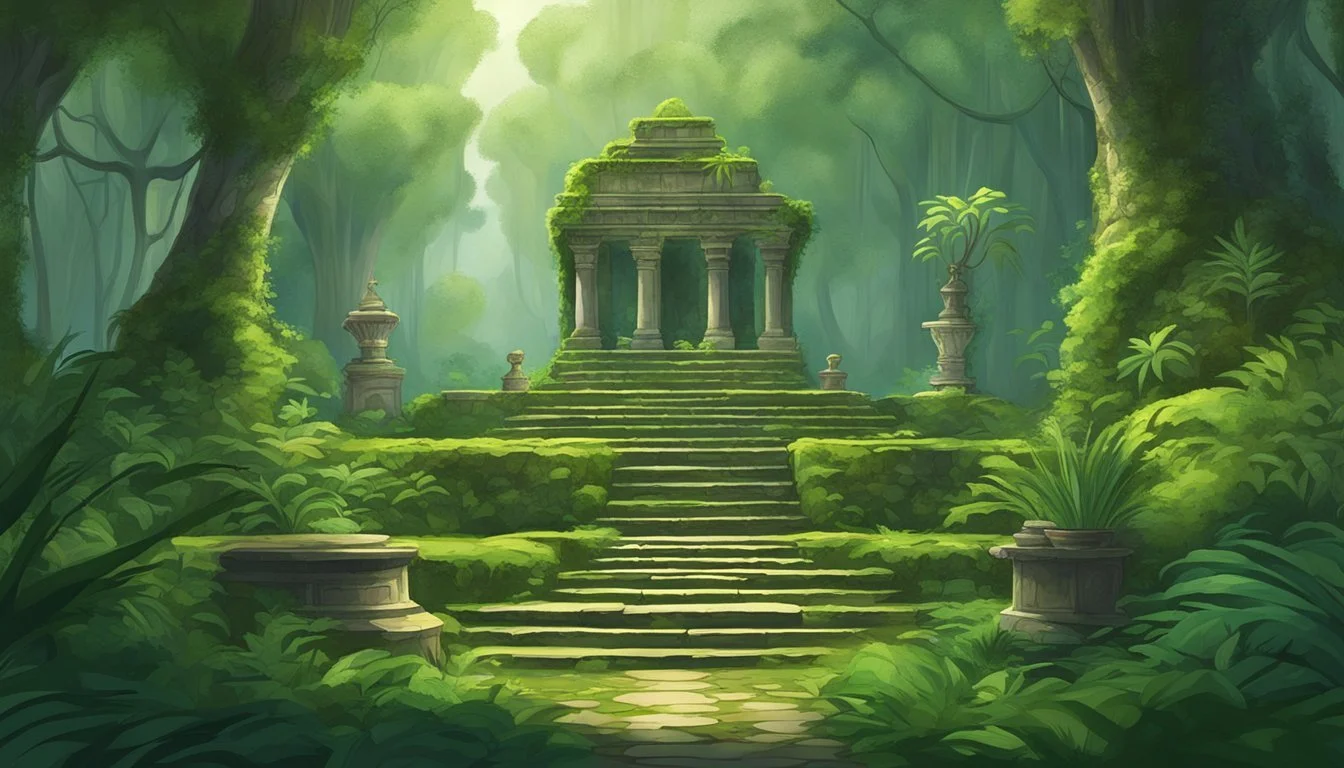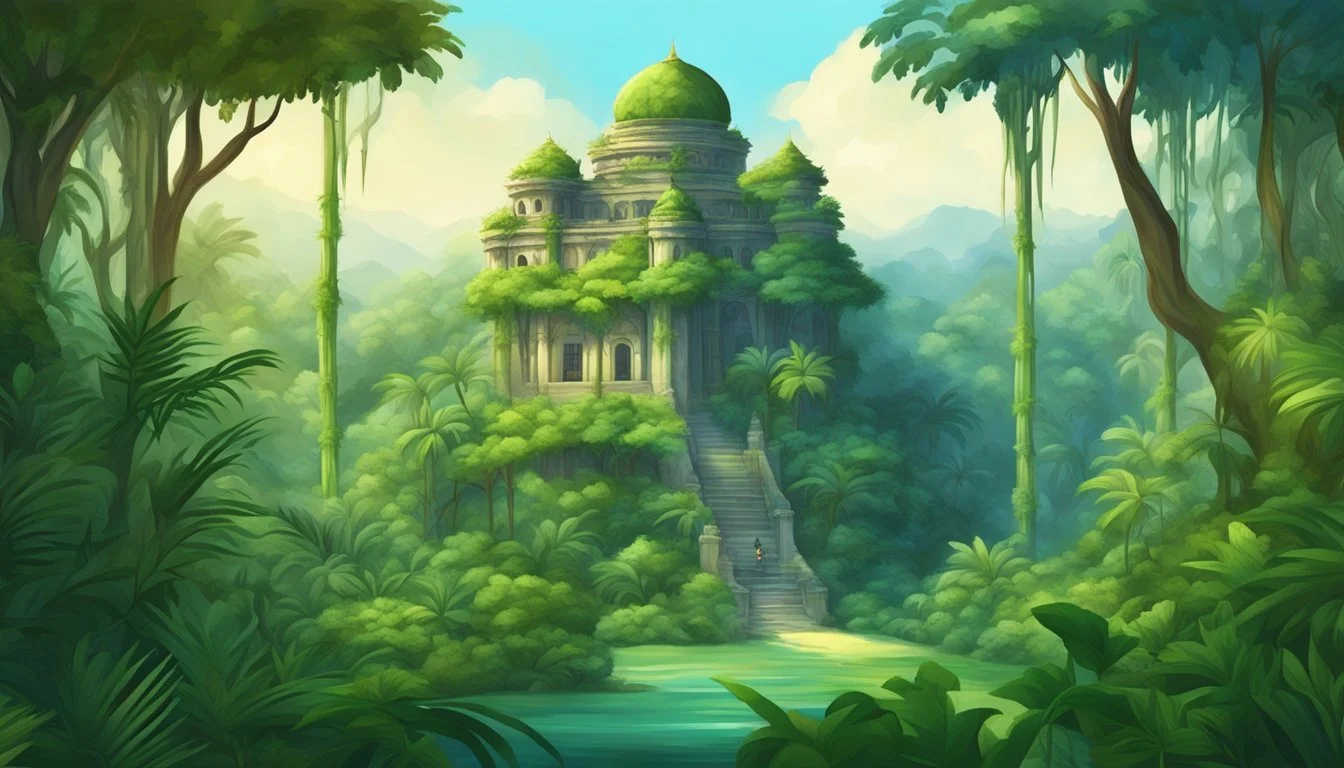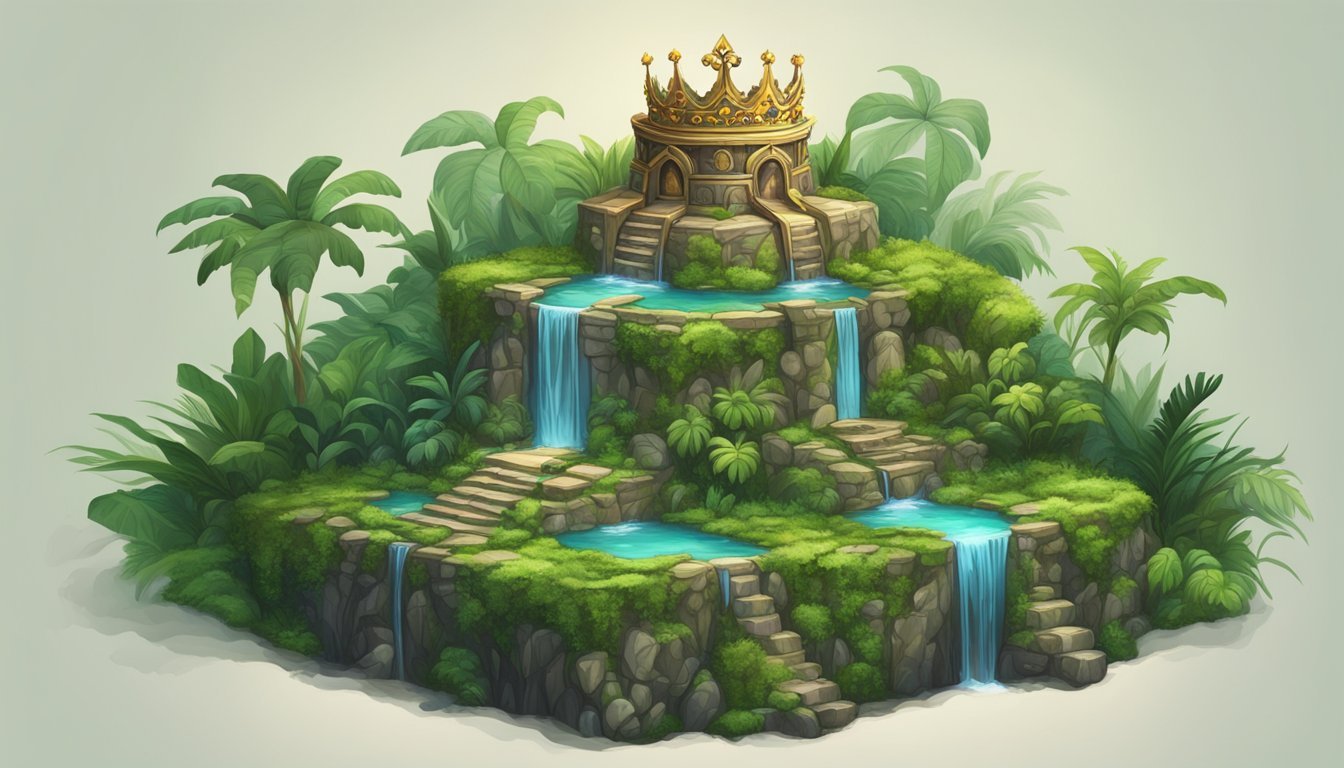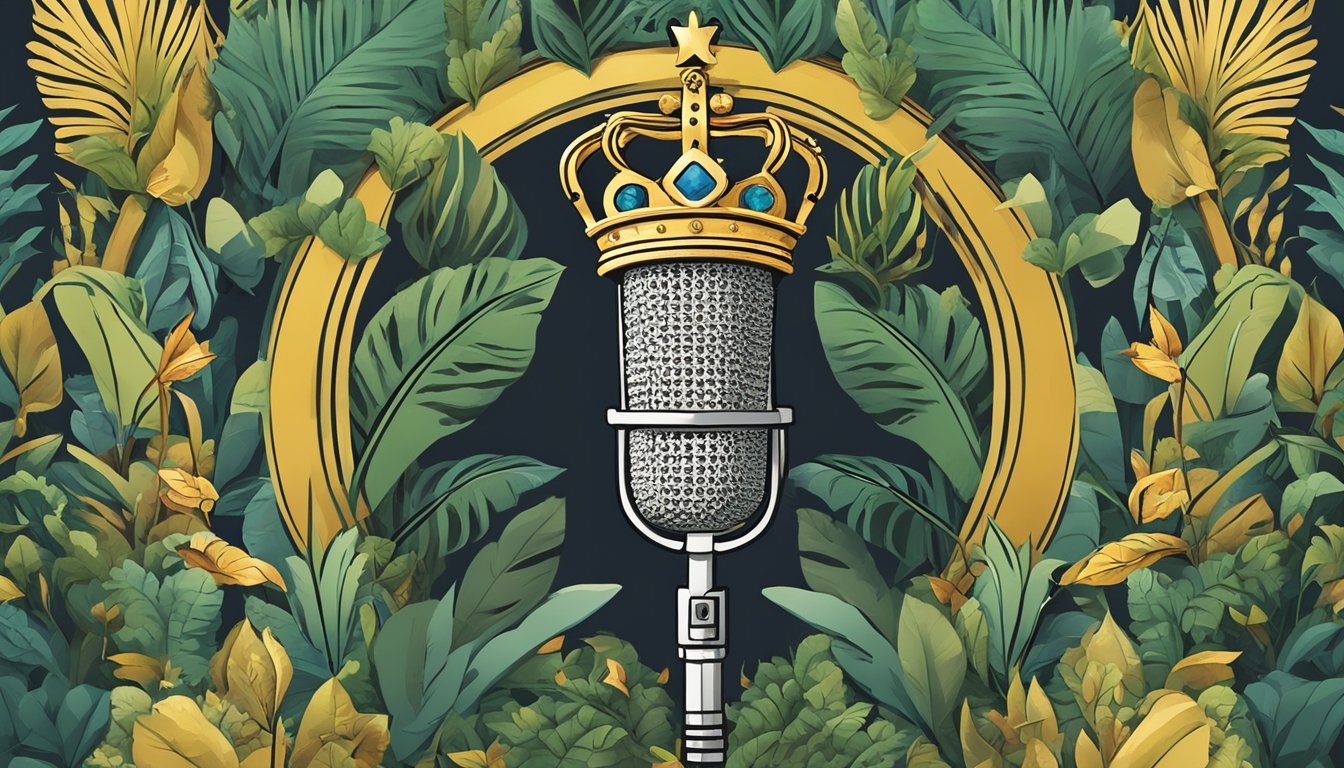The Jungle Prince: Royal Mystery Podcast Lands TV Series Deal
The Jungle Prince podcast captivated listeners with its exploration of a mysterious royal family in India. Based on a New York Times investigation, the series unraveled the tale of the eccentric Oudh aristocrats who lived in a ruined palace in New Delhi for 40 years. The podcast's compelling narrative and investigative journalism caught the attention of television producers, leading to its adaptation as a series.
This transition from audio to visual medium promises to bring new depth to the story. The series adaptation will likely delve into the complexities of the royal family's claims, the journalists who covered them, and the historical context of Oudh's deposed nobility. Viewers can expect a rich tapestry of Indian culture, post-colonial tensions, and personal drama woven throughout the episodes.
The success of The Jungle Prince demonstrates the enduring appeal of real-life mysteries and the power of storytelling across different media platforms. As the series adaptation moves forward, it has the potential to reach an even wider audience, bringing this intriguing tale of identity, legacy, and the blurred lines between fact and fiction to screens worldwide.
Origins of the Oudh Royal Family
The Oudh royal family's history is intertwined with the rise and fall of aristocracy in India. Their legacy spans centuries, from the heights of power to eventual displacement during tumultuous political changes.
The Rise and Fall of Oudh Aristocracy
Oudh, a princely state in northern India, rose to prominence in the 18th century. The Nawabs of Oudh ruled from their capital in Lucknow, known for its opulent architecture and cultural refinement.
At its peak, Oudh was a center of art, literature, and cuisine. The royal family lived in lavish palaces, surrounded by courtiers and artisans.
However, British colonial expansion led to Oudh's annexation in 1856. The last Nawab, Wajid Ali Shah, was exiled to Calcutta, marking the end of Oudh's autonomous rule.
The Partition of India and Its Impact on Royalty
The 1947 Partition of India further upended the lives of former aristocrats. Many royal families, including those from Oudh, lost their titles, lands, and privileges.
Some royals adapted to the new political landscape, while others struggled to maintain their identity and status.
The partition created mass migrations and displaced millions, including members of royal households. Many aristocrats found themselves in unfamiliar territories, trying to preserve their heritage.
This upheaval set the stage for complex claims of royal lineage in the following decades, blurring the lines between historical fact and romanticized narratives.
The Jungle Prince Narrative
The Jungle Prince podcast tells a captivating tale of deposed royalty, eccentric lives, and hidden truths. It explores a decades-long mystery that captured the imagination of journalists and the public alike.
Ellen Barry's Discovery
Ellen Barry, a New York Times journalist, stumbled upon the story of the Oudh royal family. For 40 years, this family lived in a crumbling palace in Delhi, claiming to be deposed aristocrats. Barry received an invitation to their forest dwelling, sparking her investigative journey.
She uncovered layers of intrigue surrounding the family's identity and history. Barry's research took her through old Delhi, where tales of the jungle prince had circulated for years among locals.
The podcast series chronicles Barry's meticulous work to separate fact from fiction. She interviewed numerous sources and dug through historical records to piece together the true story behind the Oudh royals.
Unraveling the Mystery
As Barry delved deeper, she found discrepancies in the family's claims. The story that had been accepted for decades began to unravel. She traced the family's origins and uncovered surprising truths about their past.
The investigation led to unexpected revelations about the family's true identity. Barry's work challenged long-held beliefs and shed light on the motivations behind the elaborate facade.
The podcast takes listeners through each twist and turn of the investigation. It reveals how a fabricated story managed to persist for so long and fool so many people, including seasoned journalists.
Themes of Eccentricity and Tragedy
The Jungle Prince narrative is marked by themes of eccentricity and tragedy. The family's unusual lifestyle and grand claims of royal heritage captivated many who encountered them.
Their story touched on themes of lost grandeur and the lingering effects of India's royal past. The family's isolation and dedication to maintaining their narrative added to the mystique surrounding them.
As the truth emerged, the tragic aspects of their lives came into focus. The podcast explores the human cost of living a life built on an elaborate lie and the impact it had on the family members and those around them.
The Podcast's Creative Journey
The Jungle Prince podcast transformed from investigative journalism into an immersive audio experience. Its development involved meticulous reporting and innovative storytelling techniques.
From Reporting to Podcasting
Ellen Barry's years-long investigation into the Oudh royal family formed the foundation of The Jungle Prince. Her extensive research and interviews with locals in Old Delhi uncovered a fascinating tale passed down through generations.
The New York Times recognized the story's potential for audio format. They collaborated with Barry to adapt her written work into a podcast series. This transition allowed for a more intimate exploration of the mystery surrounding the supposed royals.
Producers worked to weave together Barry's narration, archival recordings, and interviews. They crafted a narrative structure that balanced historical context with personal accounts. The podcast format enabled listeners to hear the actual voices of key figures in the story.
The Role of Music in Storytelling
Music played a crucial role in enhancing the podcast's atmosphere. Composers created original scores that evoked the mystique of Old Delhi and the alleged royal family.
Careful sound design incorporated ambient noises from the city and the forested area where the "royals" lived. These audio elements helped transport listeners to the story's setting.
The producers used music to underscore emotional moments and build tension. Subtle changes in the soundtrack signaled shifts in the narrative, guiding listeners through the complex tale. This attention to audio detail elevated The Jungle Prince from a simple retelling to an immersive audio experience.
Adaptation to Series
The Jungle Prince podcast is set to be adapted into a television series, bringing the intriguing royal mystery to screens worldwide. This expansion will delve deeper into the story that captivated listeners.
Behind the Scenes of Adaptation
A team of experienced producers and writers is working to transform the audio narrative into a visual spectacle. The adaptation process involves extensive research to expand on the original podcast material.
Scriptwriters are crafting new scenes and dialogues to flesh out the characters and settings. Production designers are scouting locations in India to recreate the atmospheric ruined palace and forest described in the podcast.
Casting directors are searching for actors to portray key figures like the self-proclaimed royal family members and the journalists who investigated their claims.
New York Times' Role in the Adaptation
The New York Times, which produced the original podcast, is closely involved in the series adaptation. The newspaper's journalists who reported the story are serving as consultants to ensure accuracy.
The New York Times Company retains creative control over the project to maintain the integrity of the reporting. They are providing access to additional research materials and unpublished interviews to enrich the series.
The company's audio division is collaborating with the TV production team to translate the podcast's atmospheric sound design into visual elements. This partnership aims to preserve the documentary feel of the original while expanding its scope for television.
Cultural and Historical Context
The Jungle Prince podcast explores the intersection of Indian royalty, colonial history, and modern urban legends. This cultural tapestry provides a rich backdrop for the unfolding mystery.
The Ruined Palace as a Symbol
The dilapidated palace at the heart of the Jungle Prince story symbolizes the fading grandeur of India's royal past. Once opulent residences of nobility, many such structures fell into disrepair after the abolition of princely states post-independence.
These crumbling edifices serve as physical reminders of a bygone era, evoking nostalgia and curiosity among locals and visitors alike. The palace in the Indian capital becomes a character itself, its decaying walls holding secrets and fueling rumors about its mysterious inhabitants.
The Forest of Oudh: A Character in Its Own Right
The forest surrounding the ruined palace plays a crucial role in the Jungle Prince narrative. Historically, Oudh was a prominent kingdom in northern India, known for its lush landscapes and cultural richness.
The forest creates an air of isolation and mystique, separating the eccentric royal family from the bustling city beyond. It acts as a natural barrier, preserving their enigmatic lifestyle and fueling local legends.
This green oasis within the urban sprawl represents a link to India's past, when forests were revered and royalty maintained private hunting grounds. The contrast between the verdant woodland and the nearby metropolis highlights the tension between tradition and modernity in contemporary India.
Impact and Reception
The Jungle Prince podcast series garnered significant attention for its investigative journalism and storytelling. It sparked discussions about media ethics and captivated audiences worldwide.
Journalistic Integrity and Fact-Checking
The podcast showcased meticulous research and fact-checking. Journalists spent years unraveling the complex tale of the supposed royal family of Oudh. They verified historical records, interviewed numerous sources, and examined documents to separate fact from fiction.
The series highlighted the importance of thorough investigation in journalism. It demonstrated how persistence and careful scrutiny can unveil the truth behind long-standing myths.
Many media outlets praised the podcast for its commitment to accuracy and transparency. The New York Times' approach to this story became a model for responsible reporting on sensitive subjects.
Public and Critical Reception
The Jungle Prince received widespread acclaim from listeners and critics alike. It topped podcast charts and attracted a large audience. Many praised its compelling narrative structure and immersive storytelling.
Listeners were captivated by the mysterious tale and the gradual revelation of facts. The series sparked conversations about identity, history, and the power of storytelling.
Critics lauded the podcast for its balanced approach to a sensitive topic. They noted its respect for cultural nuances and careful handling of complex family dynamics.
The series' success led to increased interest in investigative audio journalism. It inspired other podcasters to tackle in-depth, long-form stories with similar rigor and attention to detail.
Exploring the Legacy
The Jungle Prince podcast series unravels the enigmatic tale of the Oudh royal family, exposing a legacy marked by tragedy and eccentricity. Their story captivated journalists and locals for decades, leaving an indelible mark on Indian history and popular culture.
The Tragic Legacy of the Oudh Royal Family
The Oudh royal family's legacy is a tapestry of intrigue and sorrow. For 40 years, they lived in a ruined palace in Old Delhi, claiming to be deposed aristocrats. Their eccentric lifestyle and regal assertions drew widespread fascination.
Journalists chronicled their story, painting a picture of fallen nobility clinging to past glory. The family's isolation in the forest palace became legendary, with tales spreading among tea sellers, rickshaw drivers, and shopkeepers.
Their legacy extends beyond mere curiosity. It raises questions about identity, history, and the enduring impact of colonialism. The family's tragic narrative highlights the complexities of India's royal past and its transition to modern statehood.
The Jungle Prince podcast series brings this legacy to light, examining the veracity of their claims and the circumstances that led to their unusual existence. It explores the intersection of fact and fiction in their story, revealing the human drama behind the royal facade.








